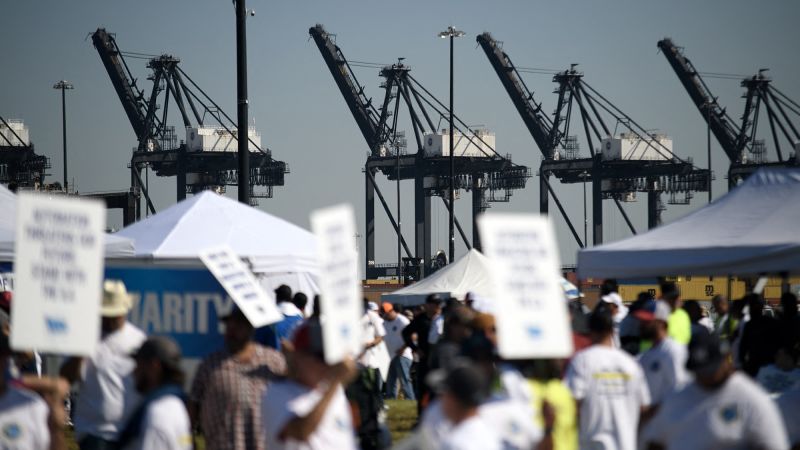The shortage of toilet paper in stores across America is not a result of a major port strike on Tuesday but rather panic buying. Social media was filled with reports of empty shelves where toilet paper and paper towels were supposed to be found. This panic buying behavior is reminiscent of the shortages and limitations on purchases that occurred during the pandemic in 2020, causing people to rush to stock up out of fear of a shortage.
Despite the panic buying, the port strike from Maine to Texas will have minimal impact on the supply of toilet paper, as the majority of US consumption comes from domestic factories. Most of the remaining supply comes from Canada and Mexico and is likely transported by rail or truck rather than by ship. The American Forest and Paper Association, representing paper manufacturers, expressed concerns about the strike’s impact on export markets rather than imports, potentially resulting in a glut of toilet paper rather than a shortage.
While toilet paper supplies remain relatively stable, there may be shortages for perishable goods that the US market relies on imports for, such as bananas. Nearly 100% of the US supply of bananas is imported, with more than half coming through the ports affected by the strike. Bananas have a short shelf life, so shippers were unable to ship large volumes in advance of the strike, leading to potential shortages in the market for this popular fruit.
It is important to note that toilet paper is a non-perishable good, meaning that hoarded toilet paper will last until the next round of panic buying, even if that happens years from now. Additionally, almost none of the toilet paper supply moves through the ports affected by the strike. The panic buying behavior seen in response to the perceived shortage is driven by fear and memories of past shortages from the pandemic era, rather than a direct impact of the strike on toilet paper supplies.
Overall, while reports of shortages in stores caused by panic buying may be concerning, the actual impact of the port strike on toilet paper supplies is minimal. The majority of US toilet paper production comes from domestic factories, with limited imports from Canada and Mexico. However, perishable goods such as bananas that heavily rely on imports are likely to face shortages due to the strike. It is essential for consumers to remain informed about the actual factors affecting product supply to avoid unnecessary panic buying behavior.















